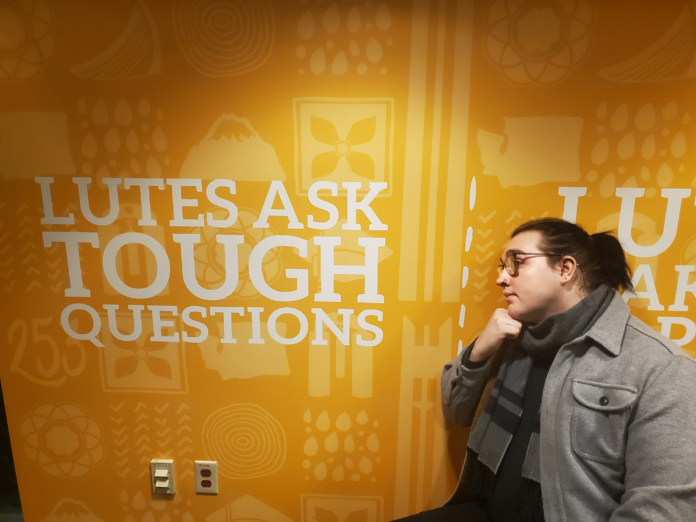Natalie Elskamp
Staff Reporter
Philosophy should be taught in high school, and everyone should be required to take it.
This does not mean kids ought to dive head first into elaborate metaphysics and axiology, but starting with fundamental logic would serve them and society as a whole.
Philosophy is a more technical than one might think, and it has numerous practical applications in our lives. It teaches one how to think critically, evaluate arguments, identify fallacious reasoning and seek out well-reasoned solutions to societal problems. Moreover, it teaches us that our own conclusions should be questioned.
Unfortunately, most never study philosophy at all and it is glaringly obvious. Just how many people think philosophers do no more than sit on rocks, scratch their heads and contemplate the meaning of life through seemingly profound guesswork? Too many, it seems.
So why start with logic? What would be helpful for the average person to better understand?
Arguments -collections of statements that include a conclusion drawn from premises -are the currency of philosophy. For some, the term ‘argument’ induces a feeling of uneasiness when it is brought up in the context of issues that matter to them. People mistakenly believe that logic and emotion are at odds, and that if we prioritize the soundness of arguments, we may compromise our sensibility.
This is a misconception. The opposite of logic is not emotion or sensibility, it is incoherence.
Only a conclusion that follows from the accepted premise(s) of a deductive argument should be accepted. This is not a matter of preference.
We must be careful to distinguish between contesting the validity of an argument and the truth of an argument’s premises. Virtually any conclusion can be the correct one (or the most plausible one in the case of inductive arguments), so long as we accept the premises from which it follows.
Accordingly, whenever someone makes a claim we do not agree with, we should be asking ourselves, “Do I disagree with the baseline assumptions they are making (the premises), or does the argument lack internal consistency?” This will determine how we respond.
The classroom is an ideal setting to engage with philosophy because it gives learners the opportunity to dialogue with individuals who are equally experienced, but who have different perspectives and biases. It also gives learners the opportunity to decide if the subject is one that interests them.
If philosophy is introduced too early, such as in primary school, students will not grasp it. If introduced too late, such as in college, many students will never have the chance or the will to take it. That is why it must be taught in high and in middle school.
Ultimately, it is important that everyone is equipped with the skills necessary to reason
and argue effectively because everyone reasons and argues; it is just part of what it means to be human. But if we will not commit ourselves to teaching the young, how else will they learn?




















